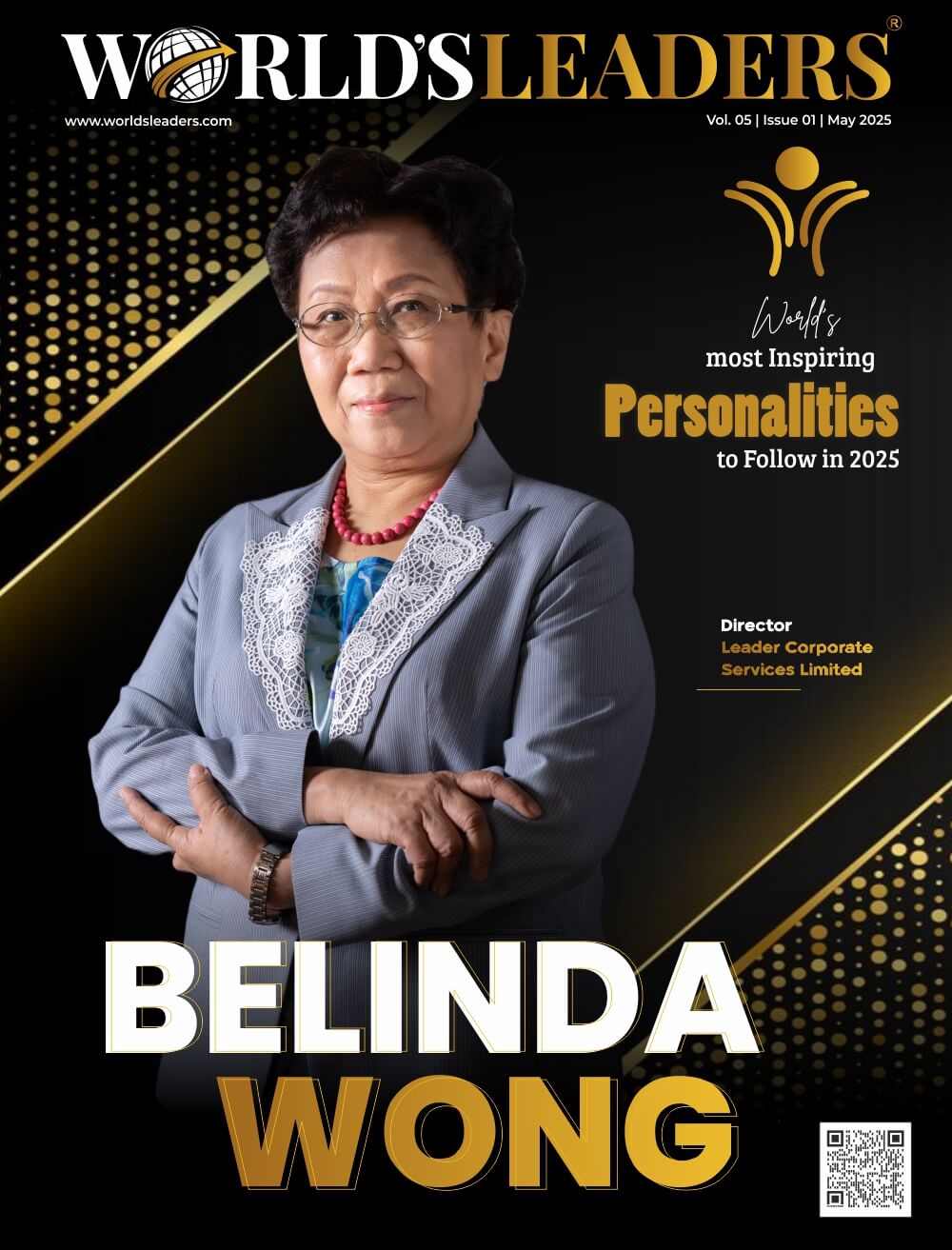One of the most important occupations in our nation is teaching. Teaching has historically been viewed as an excellent career choice for women because it affords them the opportunity to support students’ growth and development, which is entirely consistent with their traditional responsibilities as mothers. Women often put forth a lot of effort and excel at multitasking and project management. They employ critical thinking and focus on the root cause or source of a problem or issue while working strategically to find a solution. Moreover, women are committed to working collaboratively to discover answers to challenging issues and solve complex problems and are often highly innovative in their approach. In fact, new data suggests a link between female school administrators and improved student outcomes. According to several studies, female school administrators are more likely than their male counterparts to use efficient management techniques that lead to better results.
Roslyn Clark Artis’ leadership has been praised both locally and globally for being deliberate, professional, and completely dedicated to the growth and transformation of schools and institutions that serve marginalized men and women of color. In 2018, she was named “Female HBCU President of the Year” by HBCU Digest. In 2019, Roslyn was named to Diverse Issues in Higher Education’s “Top 35 Leading Women in Higher Education.” In 2020, she was named “President of the Year” by Higher Ed Dive for her leadership in navigating the unprecedented challenges of 2020.
Roslyn is President and CEO at Benedict College. Under her leadership, Benedict College was awarded the 2019 American Council on Education (ACE) Fidelity Investments Award for Institutional Transformation. The award recognizes institutions that have responded to higher education challenges in innovative and creative ways and achieved dramatic results in a short period of time. Benedict was also named 2019 HBCU of the Year by the HBCU Digest.
Dr. Artis is regularly called upon to serve as a mentor, lecturer, and catalyst for strategic transformation. She is a gifted public speaker, critical thinker, and tenacious supporter of educational access. She has published countless articles and editorials on subjects related to higher education equity and inclusion as well as the challenges involved with leading minority-serving institutions. President Artis is a widely respected innovator and thought leader on issues of higher education, particularly as it relates to underserved and vulnerable populations. She is the founding Co-Chair of the Annual Historically Black College and University Sustainability Summit, which is now in its fifth year. For these and other efforts, she has won more than 300 honors and awards both locally and globally.
President Artis recently joined the National Advisory Committee on Institutional Quality and Integrity in 2021. (NACIQI). Through the Committee’s open hearings, NACIQI provides advice to the U.S. Secretary of Education on issues relating to accreditation, the Secretary’s recognition procedure for accrediting bodies, and institutional eligibility for federal student aid.
Desire to Earn Higher Education
Roslyn was raised in Beckley, West Virginia. Neither of her parents, Robert and Christina Clark, were college graduates. Her father worked as a coal miner, and her mother was a nurse’s aide. She shares, “We were, what could best be described as, “working poor.” I am one of the students I currently serve on my campus—low wealth, first generation, underrepresented minority with a burning desire to earn an education.”
She graduated from West Virginia State (College) University in Institute, West Virginia, a small, historically black university, with a Bachelor of Arts degree (Magna Cum Laude). In 1995. Thereafter, she earned her Law degree from WVU College of Law.
After almost nine years of legal practice, Roslyn switched to a career as a full-time academic administrator in 2003. Prior to her change, she had spent several years coaching a moot court team, mentoring budding attorneys, and teaching as an adjunct professor. Although she found fulfillment in her legal profession, she came to the conclusion that her true love was education. Her legal degree continues to be her most useful certification, even though she eventually sought and received a Doctorate in Higher Education Leadership and Policy from Vanderbilt University.
In 2003, Roslyn joined the College of West Virginia, a forerunner of Mountain State University and the current home of WVU Tech. She held a variety of positions throughout her nine years at the college, ranging from faculty to executive vice president. She gained tremendous experience and learned a great deal during the organization’s successes and even more from their mistakes at each phase and level. She says, “I am a better administrator today because of those experiences.”
Roslyn assumed the presidency of Florida Memorial University in 2013, a small, private Historically Black University. In 2017, she resigned from FMU to take the helm of Benedict College, another small, private HBCU. She believes that this is the setting where she has the most influence.
Benedict College
Benedict is a medium-sized private, historically black college with a connection to the Baptist faith. Once a small teacher/preacher college founded by a northern missionary on what had once been a slave plantation, has grown into a thriving academic enterprise that provides a range of in-demand programs, including computer science, engineering, cybersecurity, and entrepreneurship, among others. The College works hard to offer high-quality, reasonably priced academic programs in a setting that is culturally sensitive, with a full range of support services.
In 2018, Benedict took a ground-breaking step by lowering tuition by 26%. Roslyn asserts, “We recognized that our population simply could not afford what we were charging. This move has reduced our accounts receivable and, more importantly, the student debt load has come down significantly. We must continue to find innovative ways to engage and support these young people.” The students at Benedict are extremely important to the school and their well-being – academically, socially, emotionally and financially is the President’s priority.
The typical responsibilities of a college president, according to Roslyn, include setting the college’s strategic direction and guiding vision, as well as managing a team of individuals who work to accomplish institutional objectives in the areas of fundraising, community involvement, infrastructure upkeep and development, academic programs, learning outcomes, and technology implementation. She carries out these duties every day at Benedict with a deep awareness of, devotion to, and responsibility for, the kids the school serves. Her interactions with her students—hearing their stories, addressing their issues, and recognizing their accomplishments—are the highlight of her day. She makes the statement that her students “give her life”.
A Leader and a Mom
Roslyn is a mother, a wife, a sister, a lawyer, a teacher, and the president of an HBCU. Her biggest concerns are her family and her beliefs. Her duties as the college president, however, are a logical extension of her own goals. She sincerely cares about her students’ achievements and treats them as if they were her own children. In order to give them the best chance of succeeding in the classroom and beyond, Roslyn aspires to be well-prepared and dedicated. She uses her background as an attorney to her college’s and her students’ advantage. Most people characterize Roslyn’s commitment to the growth and development of schools and institutions that serve underserved men and women of color as being constant, purposeful, passionate, and fully devoted.
Keys to Constant Growth
Roslyn never ceases to learn. She is both a personal and professional lifetime learner. She believes that every interaction, encounter, and experience is worthwhile. For instance, obtaining a legal degree and advocating for her clients taught her a lot about human nature and advocacy in general. Today, Roslyn’s students are her clients, and she fights for them just as fiercely as she did when she was a client advocate. She believes, “Leaders must continually evolve, learn, and grow – particularly higher education leaders. The student’s profile, preferences, learning modalities and methods change rapidly. Yesterday’s solutions won’t solve tomorrow’s problems.”
Embrace change and the opportunity to grow, as change is constant and it represents progress—don’t fight change, embrace it! Roslyn advises decision-makers to be open to pondering a different viewpoint, a fresh approach, or a different tactic. Technology is developing quickly these days. Leaders need to be almost equally nimble, adaptable, and adaptive. Roslyn is a voracious reader. She strives to stay current with emerging trends and industry standards. She is almost singularly focused on results and is always willing to consider new ways of achieving the goal.
Practice Intentional Empathy. As per Roslyn, there is no substitution for kindness and genuine concern for the well-being of others, especially in her line of work. She asserts, “We are in the manufacturing business. We don’t make widgets – we manufacture human capacity. We cannot hope to extract the best from our students until we make manifest our commitment to them.” She also adds, “Education is not something we “do” to our students. It is an iterative process that requires deep engagement. That engagement begins with placing yourselves in the students’ position so that we can craft responses, policies, and practices that meet their needs.”
As far as Roslyn sees it, leaders who fail to grow, cease to learn, resist change, and fail to engage with and listen to their primary constituents—the students—often create environments that are not conducive to student success.
Education Sector after the Pandemic
These ongoing difficulties have gotten worse over the past 28 months as a result of COVID-19. The pandemic compelled institutions like Benedict to keep our attention on the mission while also developing a completely new set of tactics for accomplishing the vision.
Enrollment is the fundamental difficulty facing all higher education. According to demographic predictions, there will be fewer students in college over the next ten years, which will make it more difficult to attract the best and brightest students. Higher education is also being impacted by workforce changes as businesses are starting to undervalue a college degree in favor of certification and training programs. Higher education must figure out how to communicate its value proposition for the twenty-first century to students, families, businesses, and the public sector.
Infrastructure is one of the main factors influencing the cost of higher education. The requirement for institutions to quickly adopt learning management systems and instructional technology has increased as a result of COVID-19. Costs will also continue to be driven by student preferences and the unquenchable need for luxuries on college campuses. Public-private collaboration will be essential to overcome these obstacles. To meet these difficulties, partnerships with companies to improve curricula and encourage technological investments will be essential.
Colleges must offer courses that, if completed, lead to lucrative jobs. At Benedict, the management is highly receptive to the market. The business community is involved in determining their top needs. It has doubled down on high-demand fields like cybersecurity, information technology, engineering, logistics, and supply chain, recognizing that students who graduate in these disciplines are immediately employable, thereby making the investment they made in pursuing the degree, worth it. Roslyn says, “We are also heavily invested in growing small businesses.” In addition to getting jobs, the team wants to teach its students to create jobs and create a multiplier effect in their communities. Therefore, Benedict has invested heavily in its business incubator and its newly opened women’s business center. It wants to help create and sustain small businesses within the communities it serves.
Being a Female Leader
As a woman of color, Roslyn is intimately familiar with the term “intersectionality.” However, she finds with certainty that being a woman has had a far greater impact on her career than her race. Roslyn has had to overcome obstacles related to her decision to start a family. During the three to four years she was giving birth to her children, her career was essentially put in a holding pattern with minimal possibilities for advancement. The job route is also rife with pitfalls, such as childcare obligations that coincide with after-hours meetings, travel, and other chances that frequently result in advancement opportunities. She has endured the humiliation of being asked to order lunch, take meeting minutes, and perform many other tasks that are normally performed by members of the lessor sex. She has kept her mouth shut while sexist remarks have been made out of concern that she will come out as having a “chip on my shoulder” or, worse yet, being referred to as an “angry black woman.”
Roslyn has been honored to “break the glass ceiling” at two higher education institutions. Despite some marked gains, women remain grossly underrepresented in the upper reaches of higher education. She marvels at having the privilege of leading two different institutions as the first female president. For her, the appointments symbolize growth and achievement—personally and professionally. But more than that, her appointments are a signal to the young women on her campus, to her own daughter, and to little girls everywhere, that they can be whatever they desire.
Roslyn is the Chair of the Presidents’ Advisory Board for Title III Administrators, is a member of the Educational Testing Service (ETS) Presidents’ Advisory Council, and a Member of the Board of Directors for the American Council on Education (ACE). She also serves as an Advisory Board Member for the University of South Carolina’s National Resource Center for First-Year Experience and Students in Transition and is a Board Member for the Forum on Education Abroad. She is Vice-Chair of the “Southern Regional Education Board (SREB) HBCU/MSI Collaboration”; a member of the National Black MBA National Advisory Council; and has been named an “Equity in Energy Ambassador” for the United States Department of Energy. She previously served on the Education Advisory Committee to the Secretary of the Department of Homeland Security, Jeh Johnson, during the Obama Administration.
However, despite these successes, she is always mindful of the fact that when the glass ceiling breaks, the shards of glass often come raining down on the woman who broke it. Unreasonable expectations, micro-aggressions, and lack of mentorship and support often result in career “death by a thousand cuts” for women.
Traits of Successful Leaders
As Roslyn sees it, first and foremost, leaders must have purpose and passion for the organization, function, or people they lead or serve. It is hard to be truly great at something one is not committed to. Additionally, there is no substitute for hard work and preparation. She inherited an extremely strong work ethic from her parents. The importance of strong communication skills cannot be understated, both verbally and in writing. She adds, “A vision is an illusion if no one can understand it but you.”
Roslyn also believes successful leaders are extremely competitive and strive to live out the vision of the late Benjamin E. Mays – “Whatever you do, strive to do it so well that no man living, no man dead, and no man yet to be born could do it any better.” If one substitutes the word woman for man, he or she has Roslyn in a nutshell.
Finally, and perhaps most importantly, leaders must have a good sense of humor to balance out the intensity of their work ethic and make them tolerable to be around!
Advice for Education Leader- Find Good Mentors
Roslyn was fortunate to have mentors at each step of her professional development. Her first role models outside of her household were her teachers. Her instructors, the president of her university, and the First Lady (a lawyer and administrative law judge) all had a significant influence on her when she was at college. She says that other black female attorneys paved the way and were an invaluable source of advice for her throughout her legal career. Other presidents, especially female presidents, continue to inspire, direct, and encourage her professional path at this point in her career. They broke through the ceiling and opened doors for others, who are now filling these crucial positions.
Women must seek out sponsors—people in a position to hire, recommend, and support them in tangible ways. Roslyn suggests that you never be afraid to seek out mentorship and sponsorship! She often finds that women are hesitant to ask for help. She says, “Ask for the support you deserve – you are worth it! Never shy away from these critical relationships!”
Additionally, she says – do the work, secure the credential, take on the challenge, be bold, be brave and never be stopped by the tiny two-letter word “no.” She considers that it is simply a way of knowing that one’s opportunity is right around the corner; it simply means not now.
Written by Steve Sanchez.





